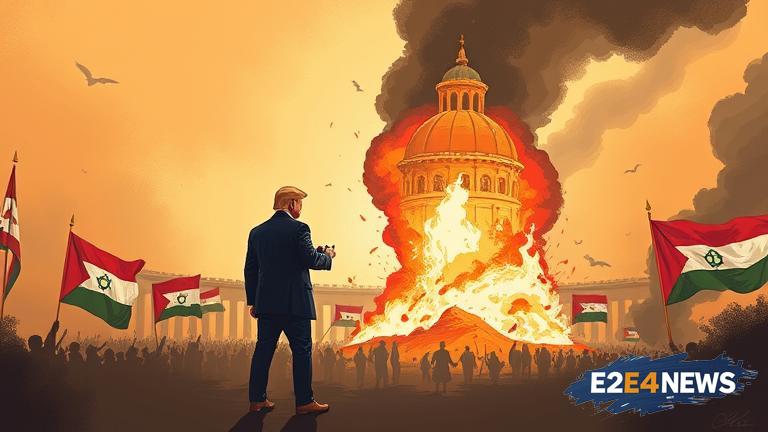The Gaza conflict has been a longstanding and complex issue, with various attempts at resolution and ceasefire agreements. Recently, former US President Donald Trump has weighed in on the situation, predicting a conclusive ending to the war within three weeks. This statement has sparked a mix of reactions, ranging from skepticism to optimism, among experts and observers. Trump’s prediction is based on his belief that the current situation is unsustainable and that a decisive outcome is inevitable. He also emphasized the need for a comprehensive solution that addresses the root causes of the conflict. The Gaza war has resulted in significant human suffering, displacement, and economic devastation, with both Israelis and Palestinians bearing the brunt of the violence. The international community has been calling for a peaceful resolution, with many countries and organizations offering support and assistance to affected civilians. Despite these efforts, the conflict persists, with periodic outbreaks of violence and retaliation. Trump’s prediction has been met with caution by some, who point out that the conflict is deeply entrenched and that a quick resolution is unlikely. Others, however, see his statement as a positive development, hoping that it may galvanize efforts towards a peaceful settlement. The Israeli government has been pursuing a policy of military action against Hamas, which it views as a terrorist organization. In contrast, the Palestinian Authority has been seeking international support for its bid for statehood and an end to the occupation. The US has historically played a key role in mediating the conflict, although its efforts have been met with limited success. Trump’s prediction may be seen as an attempt to reinsert the US into the peace process, which has been stalled in recent years. The European Union, the United Nations, and other international organizations have also been involved in efforts to resolve the conflict. A conclusive ending to the war would require a comprehensive agreement that addresses the core issues, including borders, settlements, and the status of Jerusalem. The agreement would also need to ensure the security and well-being of both Israelis and Palestinians. The role of regional players, such as Egypt and Jordan, will be crucial in facilitating a peaceful resolution. Furthermore, the international community must be prepared to provide significant economic and humanitarian support to help rebuild and stabilize the region. In conclusion, while Trump’s prediction of a conclusive ending to the Gaza war within three weeks is ambitious, it highlights the urgent need for a peaceful resolution to the conflict. The international community must work together to support a comprehensive and sustainable agreement that addresses the root causes of the conflict and ensures the security and well-being of all parties involved. The coming weeks will be crucial in determining the trajectory of the conflict, and it remains to be seen whether Trump’s prediction will prove accurate. As the situation continues to unfold, it is essential to prioritize the protection of civilians and the pursuit of a peaceful and lasting solution. The Gaza conflict is a complex and deeply entrenched issue, requiring a nuanced and multifaceted approach. Ultimately, a conclusive ending to the war will depend on the ability of all parties to compromise and work towards a shared goal of peace and stability. The international community must remain vigilant and committed to supporting a peaceful resolution, even in the face of significant challenges and obstacles. By working together, it is possible to create a more peaceful and prosperous future for all parties involved in the conflict.
